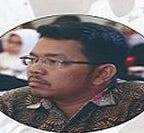Agus Salim: The Sifu
Agus Salim, known as “The Grand Old Man of Indonesia,” a Sifu, played a pivotal role in guiding the nation’s leaders and safeguarding Indonesia from destruction during the Dutch colonial period. As the elder statesman of Indonesia, Agus Salim skillfully managed the egos and conflicting interests of prominent figures like Sukarno, Hatta, and Sjahrir. His wisdom and diplomacy were instrumental in maintaining harmony among these leaders.
Agus Salim was born on October 8, 1884, in Koto Gadang, West Sumatra. He was the son of Sutan Muhammad Salim, a renowned prosecutor during the Dutch colonial era. Even from a young age, Agus Salim exhibited remarkable intelligence. Despite the limited opportunities for natives, he managed to enroll in the prestigious Europeesche Lagere School (ELS), a modern school that rarely admitted indigenous students. Agus Salim excelled and went on to pursue his education at Hoogere Burgerschool (HBS) in Batavia. He graduated as the top student in the Dutch East Indies, with plans to study medicine in the Netherlands. However, due to a lack of scholarships, he was unable to fulfill his dream. RA Kartini, who had received a scholarship from the Dutch government at the time, suggested that it be given to Agus Salim. However, he declined the offer, as he believed scholarships should be based on merit recognition. Instead, he chose to work as a consular employee for the Dutch colonial government in Jeddah, Saudi Arabia. This job provided him with language and diplomatic skills that would later aid in advocating for Indonesian sovereignty at the United Nations during the revolution era.
Agus Salim began his anti-colonial struggle by inspiring young Muslim students through organizations like the Jong Islamiten Bond (JIS). JIS subsequently produced influential Muslim figures such as Roem, Hamka, Prawoto, Kasman, and many others. Nearly all the leaders of the Masyumi Party were Agus Salim’s disciples. When Japan was defeated, and the Dutch returned to Indonesia, they sought to involve Agus Salim in their plans for governance. However, Agus Salim refused to collaborate with the new Dutch government. Instead, he chose to stand with Sukarno and Hatta, who had proclaimed Indonesia’s independence on August 17, 1945. Agus Salim’s presence was highly valued by these young leaders of the Republic of Indonesia. His experience, negotiation skills, and brilliant ideas often provided solutions to the impasses encountered in the struggle against the Dutch military. A notable example was when he joined Sjahrir in visiting the United Nations headquarters in Salt Lake City. Together, they exposed the Netherlands’ deceitful conduct during the war, convincing the United Nations Security Council to intervene and force the Dutch to resume negotiations with Indonesia.
Agus Salim’s paramount importance among the Indonesian leaders lay in his ability to foster harmony and guide them away from conflicts. Throughout Indonesia’s struggle for independence, open conflicts among the top leaders never surfaced. They respected Agus Salim’s presence and sought his counsel. His influence played a crucial role in maintaining the unity and coordination of the independence movement. Agus Salim’s untiring efforts to safeguard Indonesia’s existence earned him a revered place among the country’s leaders. He passed away on November 4, 1954, and was posthumously awarded the title of national hero by the Indonesian government in 1961.
Salim, “The Grand Oldman of Indonesia,” made remarkable contributions to the nation’s freedom struggle and safeguarded its unity. His wisdom and diplomatic skills were instrumental in bridging differences among leaders, preventing conflicts, and securing international support for Indonesia’s cause. Agus Salim’s legacy as a statesman and nationalist remains cherished, and his role in shaping Indonesia’s history is an enduring testament to his enduring importance.
The Grand Oldman, Salim, had the remarkable ability to nurture and guide the nation’s leaders, keeping them away from conflicts. Throughout Indonesia’s struggle for independence, open conflicts among the top leaders were few and far between. They held Agus Salim in great reverence, recognizing his invaluable support and guidance. In closing, Agus Salim’s presence played a crucial role in preserving Indonesia’s existence. His dedication and contributions are commemorated by his recognition as a national hero of Indonesia in 1961. He passed away on November 4, 1954, but his legacy continues to inspire future generations in their pursuit of a united and prosperous Indonesia.
